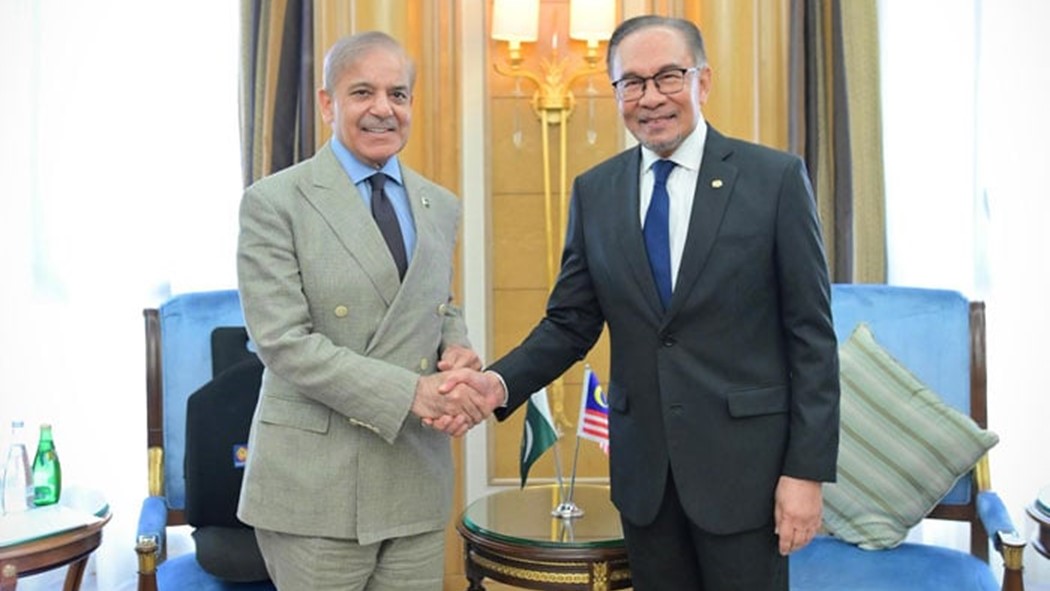The recent visit of Malaysian Prime Minister Anwar Ibrahim to Pakistan, from October 2 to 4, 2024, marked a significant step in strengthening the long-standing bilateral relations between the two countries.

A New Era in Malaysia-Pakistan Relations
Bilateral relations between Malaysia and Pakistan are embedded in shared religious, political, and cultural values, reinforced by mutual collaboration across different sectors. Being Muslim-majority countries, both nations have developed fraternal ties, mostly through cooperation in regional and global platforms. The recent visit of Prime Minister Anwar Ibrahim to Pakistan showcases the endurance of their relations and offers an opportunity to further enhance their collaboration in various sectors, mainly in tourism, trade, and energy.
Malaysian Prime Minister Anwar Ibrahim visited Pakistan at the invitation of Pakistani Prime Minister Shehbaz Sharif. He was accompanied by a high-level delegation. The visit focused mainly on enhancing collaboration in connectivity, the halal industry, cultural exchanges, connectivity, and trade. The two leaders also address regional and global developments, reflecting their mutual commitment to progress in the broader Islamic world.
Since Malaysia’s inception, bilateral relations between the two sides have played a significant role in cementing their ties. These relations were inspired by their mutual ambition for development. Defense cooperation, educational exchanges, and economic collaboration formed the basis of their bilateral diplomatic engagements. Moreover, Dr. Mahathir Mohammad, former Malaysian Prime Minister, is revered in Pakistan for his struggle for democracy and justice. He also played an instrumental role in expanding economic cooperation and trade between Pakistan and Malaysia. He made multiple visits to Pakistan which resulted in increased cooperation between the two countries on education, technology, and trade.
Pakistan’s former President General Pervez Musharraf also emphasized on strengthening ties between the two sides. The Malaysia-Pakistan Closer Economic Partnership Agreement (MPCEPA), signed in 2007, was a significant step in boosting bilateral trade between the two sides. It reduced trade tariffs and provided easy access to markets by either side. This contributed to Malaysia becoming Pakistan’s largest trade partner in the Southeast Asian region. This trade partnership is mutually beneficial for both countries. Pakistan exports rice, agricultural products, and textiles to Malaysia, while the latter exports machinery, electronic goods, and palm oil to the former.
Expanding Cooperation in Key Sectors
During this visit, both sides focused on expanding the trade of halal products, including medicines and food, due to their growing global demand. A letter of Intent was signed between Pakistan’s Fauji Meat Limited and Malaysia’s NSK for a profit-sharing collaboration in retail, distribution, and wholesale of meat. Moreover, the Business Council of Malaysia and Pakistan signed an MoU to increase trade in Halal products. Pakistan’s ever-growing energy requirements and Malaysia’s exceptional expertise in the renewable energy sector provide them an opportunity to collaborate in this sector as well. For years, Malaysia has been among the top destinations for Pakistani students to pursue higher education. This has increased people-to-people relations between the two countries. Strengthening bilateral ties between Pakistan and Malaysia will further enhance this people-to-people interaction between the two sides. In addition, this will enhance their professional and intellectual capabilities as well. The defense sector has also been a major sphere of collaboration between the two countries for years. Both countries have shared expertise in this sector as well. They have also been engaged in joint military exercises.
Cooperation in the defense sector was also a major focus of this visit of Malaysian Prime Minister Anwar Ibrahim. He met General Asim Munir, Pakistan’s Chief of Army Staff, at General Headquarters (GHQ) during his visit to Pakistan. He acknowledged the Pakistan army’s sacrifices in combating terrorism and its professionalism. Prime Minister Anwar Ibrahim also invited General Asim Munir on an official visit to Malaysia, to further strengthen bilateral defense collaboration. During this meeting, bilateral strategic interests, defense cooperation, and regional security issues were discussed between the two sides.
Prime Minister Anwar Ibrahim said that this visit held a “great personal significance”. After successfully completing this visit, he wrote on his social media timeline, “Engagements with my counterpart Shehbaz Sharif and President of Pakistan Asif Ali Zardari, alongside discussions with industry representatives, resulted in productive outcomes encompassing a wide array of mutual interests”. He further stated,
“Certainly, there will be increased cooperation in all areas of trade and agricultural technology including meat, rice and palm oil imports by Pakistan, and the two countries will also expand cooperation in the skilled worker sector through critical areas such as artificial intelligence (AI), digital and semiconductors.”
This visit holds significance for Pakistan, a country grappling with diplomatic and economic instability. Malaysia’s SNA Equity has invested $5 million in Pakistan, intending to invest a total of $15 million by the end of 2026. Strengthening relations between the two countries will mutually benefit both sides at domestic, regional, and global levels.
Taut Bataut – is a researcher and writer that publishes on South Asian geopolitics, exclusively for the online magazine “New Eastern Outlook”
